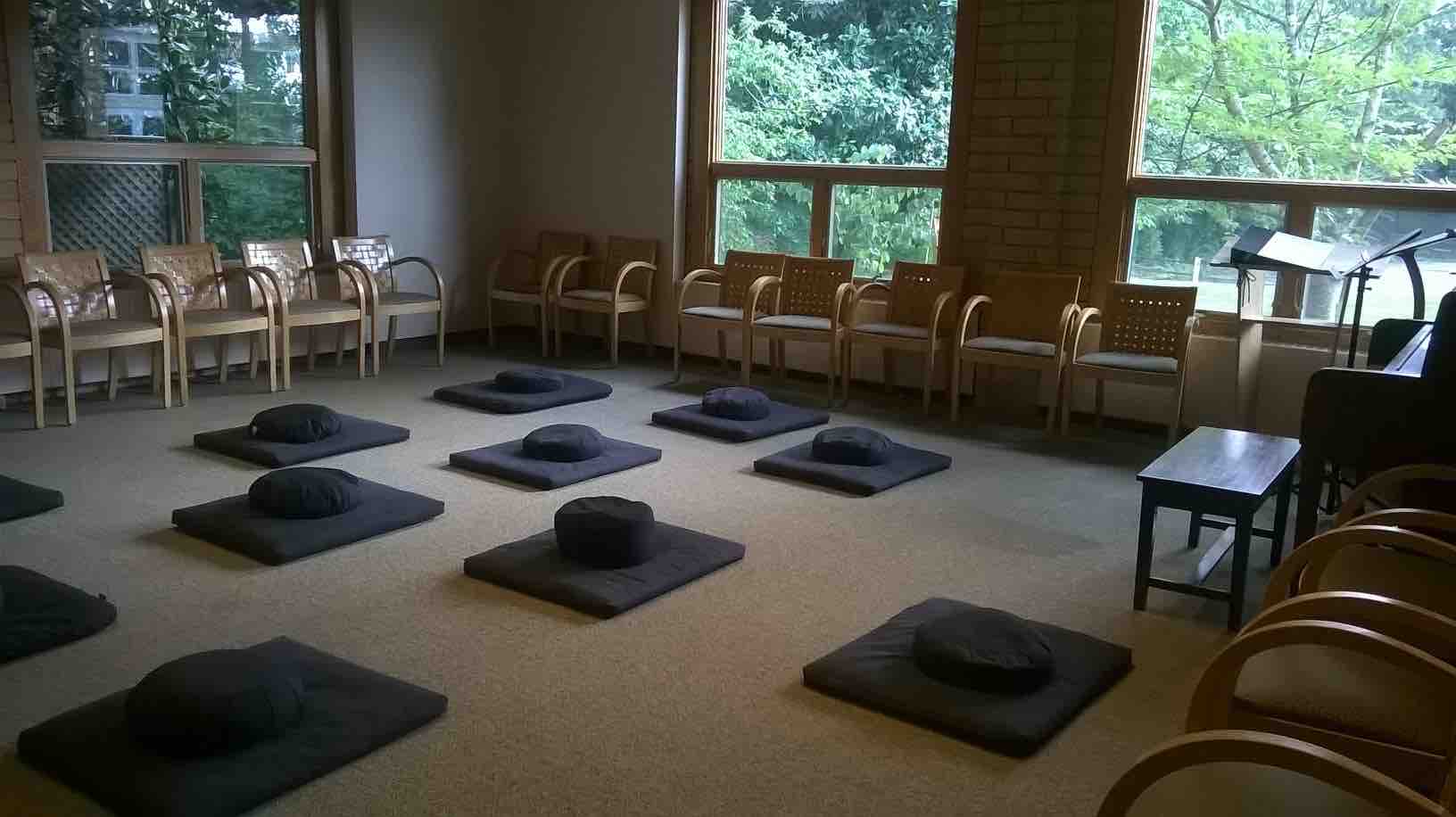Training
In Pragmatic Buddhism, our primary tool for generating a deeper understanding of our world is the practice of awareness cultivation, or mindfulness meditation (zazen; "just sitting"). This is a method that has been used since the time of the historical Buddha—Siddhartha Gautama—some 2400 years ago. Mindfulness practice is an intentional, non-judgmental embracement of our own personal contingency and the experiences we have of our world. It is the moving away from a state of average everydayness, where we are largely unaware of our motivations and habits of bodymind. In mindfulness, we engage our world directly and, becoming aware of it, accept it for what it is: a world of causal relationships that are made possible through an interconnected, interdependent reality.
 After accepting this holistic and causal reality, we can determine the best possible actions to take based on an ethic that seeks to maintain local and global harmony for all sentient beings. Another vital element of awareness cultivation in Pragmatic Buddhism is the social component, for the social setting is the locus of the agreements necessary to build a meaningful understanding and knowledge base of the world around us. It is through the intertwining of different perspectives and ideas that we learn about our world and come to know how best to approach it, reflecting CPB's priority of pluralism. As this social agreement occurs, it is refined through the cultivated awareness in the individuals who engage our world directly. CPB has established an online resource for you to begin building your own personal practice so that you, too, can partake in the cultivation of awareness to benefit you and those around you.
After accepting this holistic and causal reality, we can determine the best possible actions to take based on an ethic that seeks to maintain local and global harmony for all sentient beings. Another vital element of awareness cultivation in Pragmatic Buddhism is the social component, for the social setting is the locus of the agreements necessary to build a meaningful understanding and knowledge base of the world around us. It is through the intertwining of different perspectives and ideas that we learn about our world and come to know how best to approach it, reflecting CPB's priority of pluralism. As this social agreement occurs, it is refined through the cultivated awareness in the individuals who engage our world directly. CPB has established an online resource for you to begin building your own personal practice so that you, too, can partake in the cultivation of awareness to benefit you and those around you.



